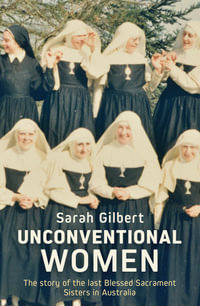The appearance of the crossbow on the European battle field in A.D. 1100 as the weapon of choice for shooting down knights threatened the status quo of medieval chivalric fighting techniques. By 1139 the Church had intervened, outlawing the use of the crossbow among Christians. With this edict, arms control was born.
As Robert L. O'Connell reveals in this vividly written history of weapons in Western culture, that first attempt at an arms control measure characterizes the complex and often paradoxical relationship between men and arms throughout the centuries. In a sweeping narrative that ranges from prehistoric times to the nuclear age, O'Connell demonstrates how social and economic conditions determine the types of weapons and the tactics used in warfare and how, in turn, innovations in weapons technology often undercut social values. He describes, for instance, how the invention of the gun required a redefinition of courage from aggressive ferocity to calmness under fire; and how the machine gun in World War I so overthrew traditional notions of combat that Lord Kitchener exclaimed, "This isn't war!" The technology unleashed during the Great War radically altered our perceptions of ourselves, as these new weapons made human qualities almost irrelevant in combat. With the invention of
the atomic bomb, humanity itself became subservient to the weapons it had produced.
Of Arms and Men brilliantly integrates the evolution of politics, weapons, strategy, and tactics into a coherent narrative, one spiced with striking portraits of men in combat and penetrating insights into why men go to war.
Industry Reviews
"This book will read with pleasure by specialists and military history buffs alike....No one can accuse O'Connell of ever boring his reader....O'Connell's comments are always stimulating....[A] most interesting and thoughtful book."--L.H. Gann, The International History Review
"O'Connell, a man with impressive credentials as a defense analyst, disarmament negotiator, and historian, has produced a challenging, interdisciplinary study of the historical relationship between culture, weapons technology, and warfare."--Booklist
"Full of fresh and sometimes provocative interpretations, couched in a stimulating writing style which laypersons as well as scholars will appreciate."--Library Journal
"Brilliant general history, focusing on man as a tool-making social predator. Particularly good on intelligence, communications, and decision-making in the electronic and nuclear age."--Theodore Ropp, Duke University
"O'Connell's judicious study of the evolution of arms from sticks and stones to death-dealing rifles, machine guns, and cannons, and, finally, to nuclear weapons demonstrates that weaponry, however destructive, has neither prevented wars nor encouraged restraint in its employment."--Norman A. Graebner, University of Virginia
"Stimulating....A lucid and well-written account of how weapons and warfare have changed over the millennia."--Richard Eder, Los Angeles Times Book Review
"[A] welcome addition...The particular insight which distinguishes Mr. O'Connell's work from others is his examination of human belligerence from a perspective normally reserved for anthropologists and biologists."--Naval War College Review
"Most readable. Adaptable to either a history of a Western culture class."--R.T. Paytan, West Washington University

























